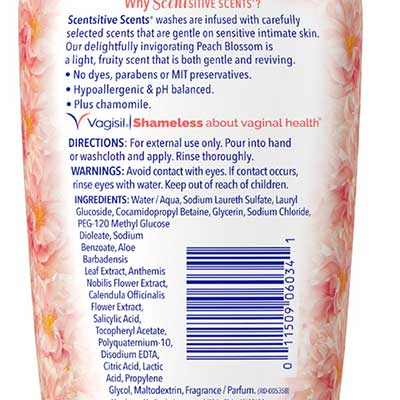Why You Should be Concerned About Intimate Care Products that Inhibit Lactobacilli
TAKE ACTION! Raise your voice in support of more research into the impacts ingredients used in menstrual and intimate care products may have on users’ health. Tell your reps we deserve to know the products we use in and on our bodies are safe. Learn more!
————————————————
 |
| Alex Scranton Director of Science and Research |
Recent testing raises a lot of questions and concerns about the impacts intimate care products are having on our bodies. Specifically, our testing looked at how products might be affecting the delicate balance of healthy bacteria (namely lactobacilli) in our vaginas.
Lacto-what? Lactobacilli are important healthy bacteria that are commonly found in the vaginal microbiome. Specifically, four types: Lactobacillus crispatus, Lactobacillus gasseri, Lactobacillus iners and Lactobacillus Jensenii are all important microorganisms which help maintain healthy vaginal pH and can prevent vaginal infections. However, this healthy balance of lactobacillus bacteria can be disrupted, allowing for a diverse variety of other microorganisms to grow which can affect your health. Disruptions of these good bacteria in the vagina can lead to significant health problems – including bacterial vaginosis, yeast infections, unpleasant odor, increased risk of sexually transmitted diseases, fertility concerns and possibly even cancer. So it is really important to ensure that any intimate care products that we are using do not inadvertently affect or inhibit the protective lactobacilli keeping our vaginas healthy.
Lack of Safety Standards and Regulations
Astonishingly, there are no regulations currently requiring companies making intimate care products to test to make sure their products do not inhibit lactobacilli. Recent testing is some of the first of its kind to find out the impacts these products may be having on healthy bacteria. Specifically, our partners at Apothercare contracted certified laboratory CLIP Labs to develop an in vitro test to evaluate how intimate care products affect lactobacilli. This means the testing was done in the lab in petri dishes and test tubes – simply testing to see if the washes, lubes and suppositories were antibacterial in a way that would kill off (or inhibit the growth of) healthy lactobacilli. Three of the eleven products tested did exactly that – inhibited the growth of four specific types of vaginal lactobacilli: Lactobacillus crispatus, Lactobacillus gasseri, Lactobacillus iners, and Lactobacillus Jensenii. The three products (Vella, Vagisil and Summer’s Eve) were particularly harsh to Lactobacillus iners, which is the lactobacillus more commonly dominant in the vaginal microbiomes of Black women. Black women disproportionately use vaginal and intimate care products at a higher rate than other ethnic counterparts.
What does this mean for our health? We don’t know for sure. It means we need a lot more research to better understand what impacts are really happening in our bodies when we use these products.
- When we use these products, are they killing off enough lactobacilli to throw off the delicate balance in our vagina?
- Could these products be causing people to develop unhealthy vaginal microbiomes?
- For people who have bacterial vaginosis (BV), and already have lactobacilli-poor vaginal microbiomes, are they having a harder time recovering to a healthier state because of the impact of these products?
- Could these products be especially harmful to the bodies of Black women, who tend to be more frequent users of intimate care products and have greater proportions of Lactobacillus iners?
Treating Symptoms with Products that Exacerbate the Problem?
So many people turn to intimate care products initially to help treat symptoms of dryness, itchiness, perceived odor – all of which could be signs of vaginal microbiomes that aren’t in optimal shape. We don’t need products that exacerbate the problem! And while we don’t have the research to fully know what is happening to our bodies, intimate care products that adversely affect lactobacilli are clearly a bad idea.
This research is just the beginning of what is needed. We tested a snapshot of just eleven products – a fraction of the variety of intimate care products out there on the market. If your product isn’t on our list, it means we still do not know what effect it might have. And we still don’t even know why those three products harmed lactobacillus compared to the other eight products which did not. It appears that CBD and THC (which are a recent trend in intimate care ingredients) are not to blame for the effect – but there are so many other possible ingredients that might be the culprits. And so many other products that still need to be tested – to better understand how common this effect is.
Intimate care product manufacturers have let us down – and we need to ask them to do better. At the very least, they should be ensuring their products are safe for vaginal lactobacilli. They need to find out how to make products that don’t have this effect; which ingredients should never make it into these products in the first place. They also need to be engaging in longer term research looking more carefully at the health impacts on our bodies from using these products. We need federal regulation requiring intimate care product manufacturers test to ensure products are not harming our bodies. It is well past time.
TAKE ACTION! Raise your voice in support of more research into the impacts ingredients used in menstrual and intimate care products may have on users’ health. Tell your reps we deserve to know the products we use in and on our bodies are safe. Learn more!




